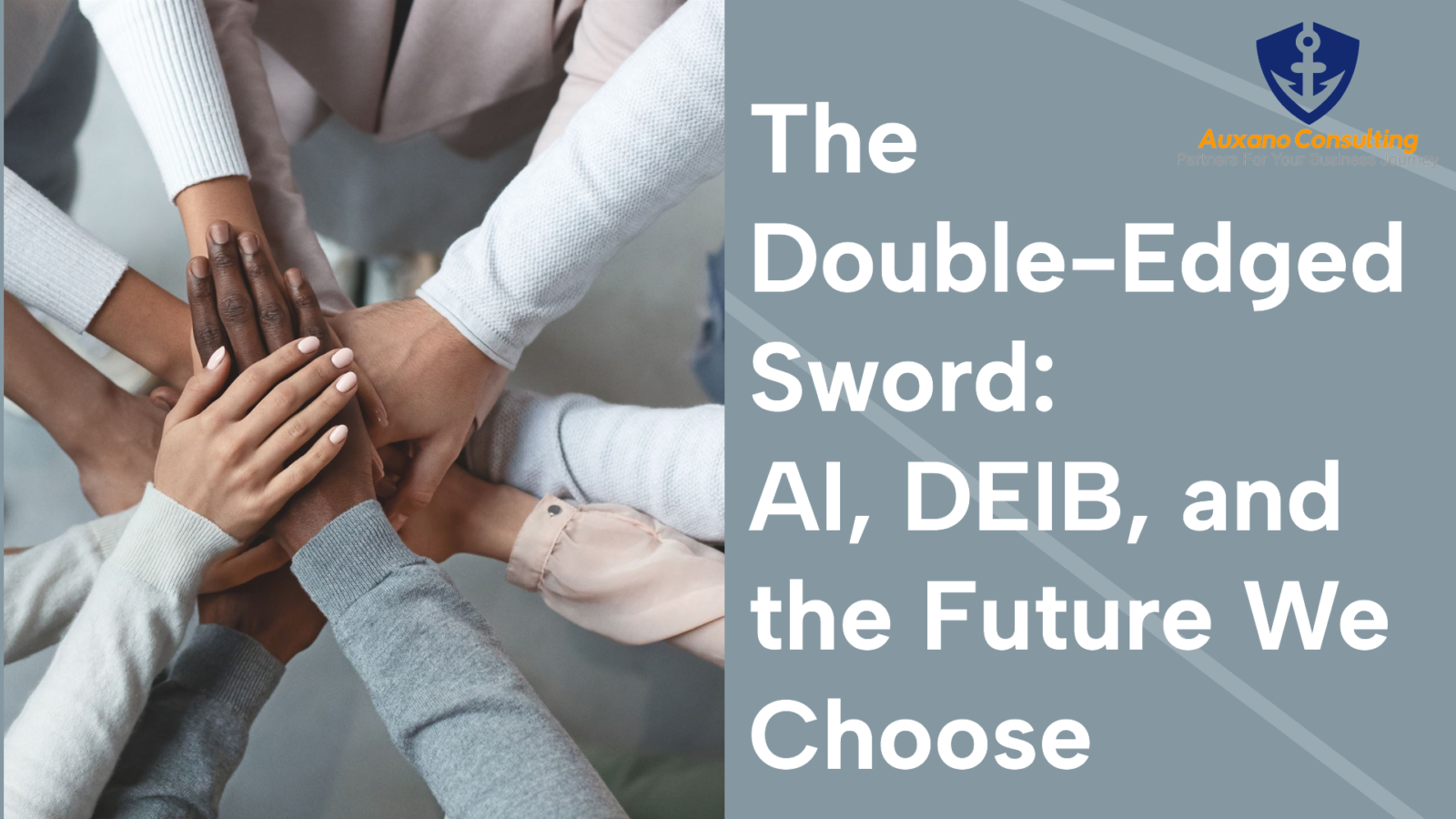Artificial intelligence (AI) has permeated every facet of our lives, promising** unprecedented levels of efficiency, innovation, and progress**. From facial recognition software to algorithmic news feeds, AI has fundamentally altered how we interact with the world and each other. Yet, alongside its transformative potential, concerns about its potential to perpetuate or even amplify existing biaseshave cast ashadow on this technological marvel. As we grapple with the complex and crucial conversation surrounding the intersection of AI and Diversity, Equity, Inclusion, and Belonging (DEIB), a critical question emerges: Will AI become a double-edged sword, amplifying existing biases and exacerbating societal inequalities, or can it be harnessed as a tool to augment belonging and create a fairer playing field for all?
The Shadow of Bias:
The C-suite advisor’s quote poignantly highlights the risk of bias being embedded in AI systems during their development and implementation. This can occur when the data used to train algorithms is limited in its scope, unintentionally perpetuating existing inequalities. For example, algorithms used in loan applications could favor individuals based on factors like zip code or previous loan history, potentially disadvantaging low-income communities.
The Looming Threat of Bias Amplification:
- Data bias: AI algorithms are trained on data sets, and if those sets are inherently biased, it can lead to discriminatory outcomes. For example, facial recognition software trained on biased data sets can lead to inaccurate identification of individuals from certain ethnicities.
- Limited perspectives: If the teams developing and deploying AI lack diversity in terms of thought, experience, and background, they may inadvertently overlook potential biases or fail to consider the impact of their work on different groups. This can lead to the development of AI systems that perpetuate existing inequalities.
- Unintended Consequences: Even with seemingly neutral data, unforeseen consequences can lead to biased outcomes. Algorithms designed to streamline hiring processes, for instance, might rely on factors like previous job titles or educational institutions. These factors, while appearing objective, can disadvantage individuals from marginalized backgrounds who may have faced systemic barriers to accessing certain opportunities.
- Transparency and accountability: The “black box” nature of some AI algorithms can make it difficult to understand how decisions are made, raising concerns about transparency and accountability when biases are amplified.
AI as a Force for Good:
While the risks associated with AI and bias are real, it’s crucial to remember that AI also holds the potential to advance diversity, equity, inclusion, and belonging (DEIB). Here are some potential benefits:
- Reduced Bias: Unlike humans susceptible to personal biases and subconscious prejudices, AI, by design, operates on objective analysis of data. This objectivity holds the potential to mitigate bias in decision-making processes in areas like hiring, loan approvals, and criminal justice, potentially leading to fairer outcomes for all.
- Accessibility and inclusion: AI has the power to break down barriers and increase accessibility for individuals with disabilities. Imagine AI-powered tools that personalize learning for diverse learners, translate languages in real-time, or provide assistive technologies, fostering a more inclusive environment for everyone.
- Diversity of Thought: AI’s ability to analyze vast datasets and identify patterns that humans might miss can be harnessed to promote diverse perspectives in decision-making. This allows for a more holistic understanding of complex issues, leading to more inclusive and equitable outcomes.
Beyond the Algorithm: Human Responsibility
Addressing this challenge requires a multifaceted approach. While technological advancements are essential, the onus ultimately lies with human responsibility. Here are some key points to consider:
- Promoting diversity in AI development teams: Ensuring diverse teams design, develop, and deploy AI tools is crucial to mitigate bias and foster responsible development.
- Data auditing and debiasing: Regularly auditing data used to train AI algorithms and employing techniques to debias data can help minimize the risk of biased outcomes.
- Transparency and explainability: Developing AI systems with built-in explainability features allows humans to understand how decisions are made, fostering trust and accountability.
- Ethical guidelines and regulations: Establishing ethical guidelines and regulations for AI development and deployment is critical to ensure responsible use and prevent harmful biases.
The Road Ahead: A Collaborative Effort
The impact of AI on DEIB remains an unfolding story, with both opportunities and challenges to navigate. By acknowledging the potential for bias amplification, fostering responsible development, and prioritizing transparency and accountability, we can shape the future of AI and ensure that it serves as a tool for inclusivity and fairness. The future we choose depends on the collective responsibility between technologists, policymakers, businesses, and individuals to address the challenges and harness the potential of AI for good. Through open dialogue, collaborative efforts, and a commitment to ethical practices, we can ensure that AI becomes a force for positive change, augmenting belonging and creating a more equitable future for all.
What are your thoughts on the intersection of AI and DEIB? Share your insights and experiences in the comments below!
For any queries write to Linnet Dave, Auxano’s Director and Executive coach on linnet@auxano-consulting.com or connect with her at +919820668179 if you need to get a customized learning Intervention done for your organization.
(Written by Vineeta, Feature Image sources and credits: AI Generated)

